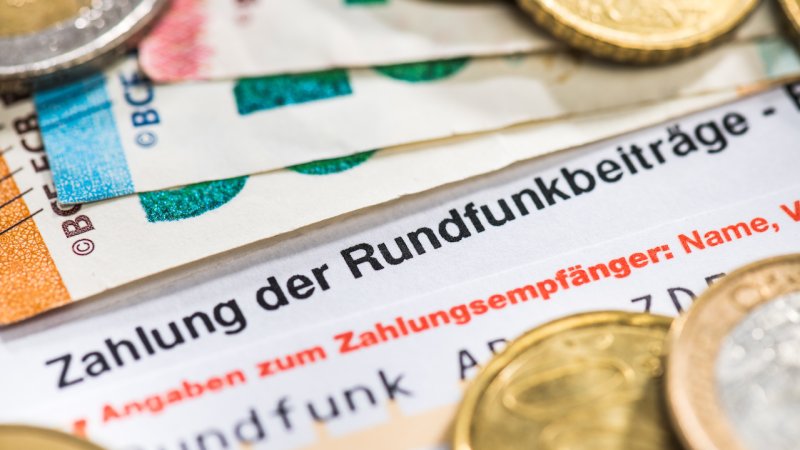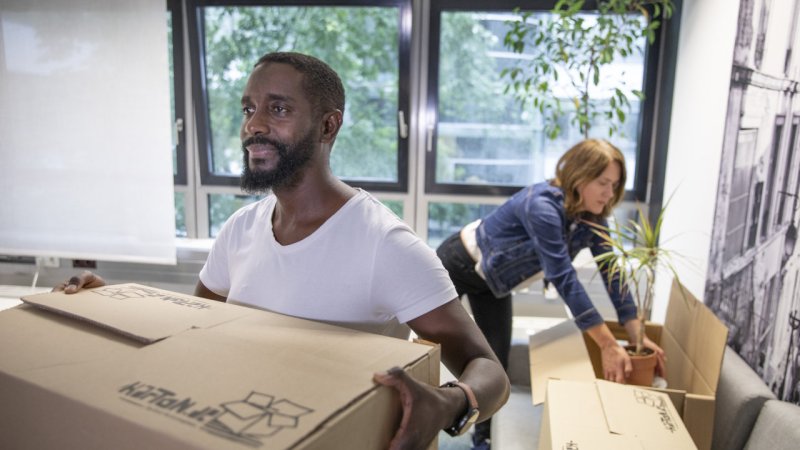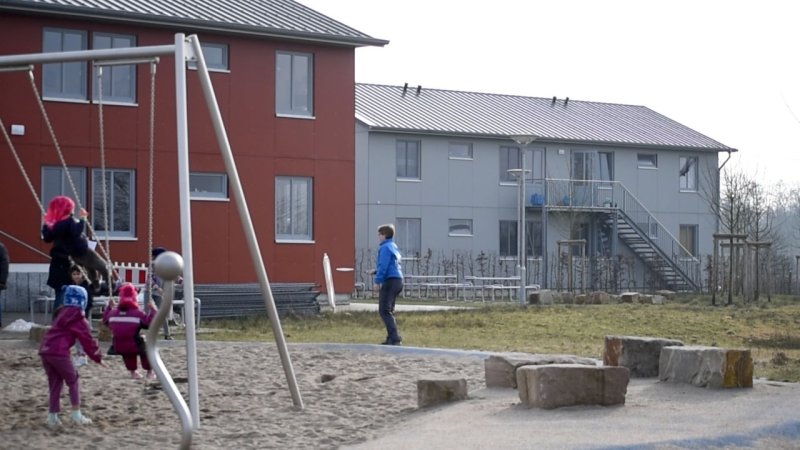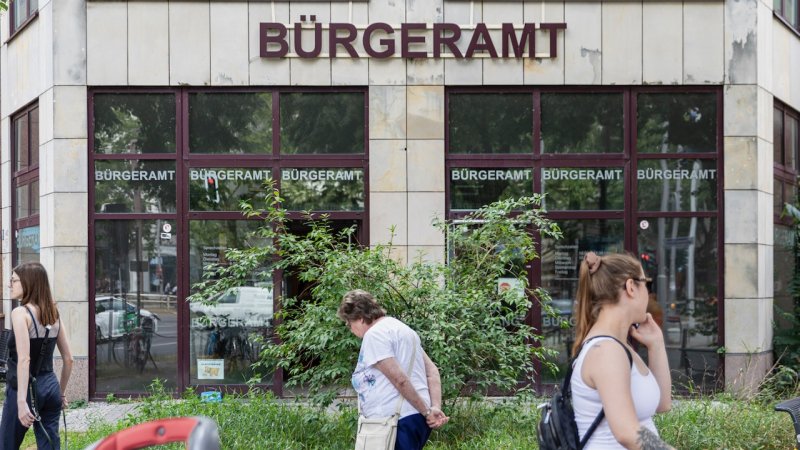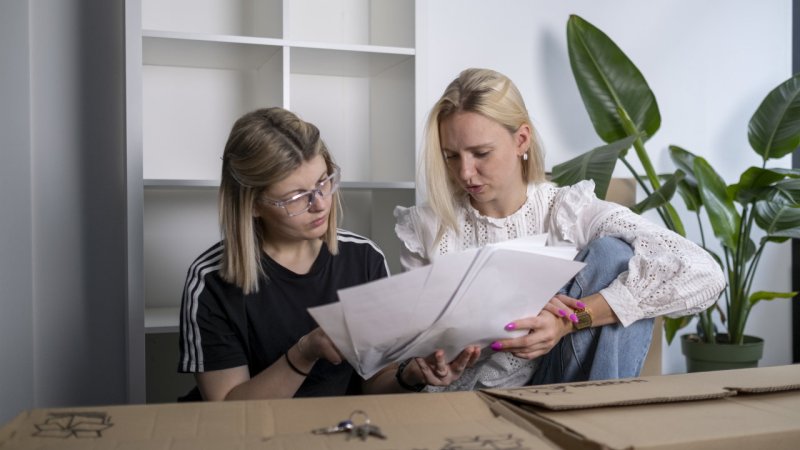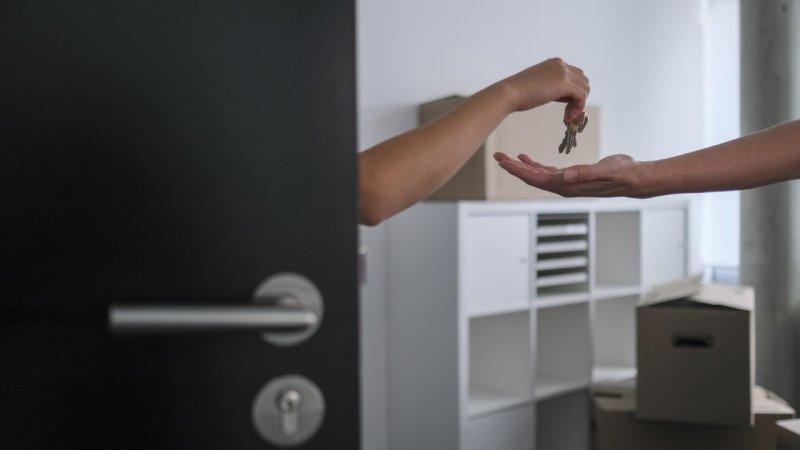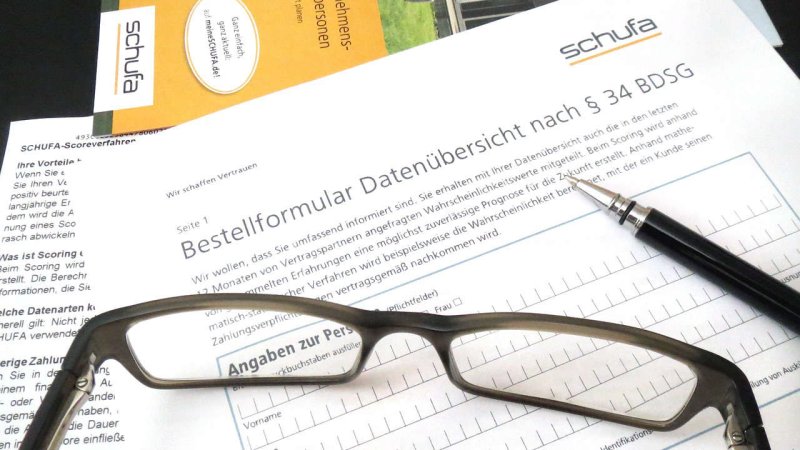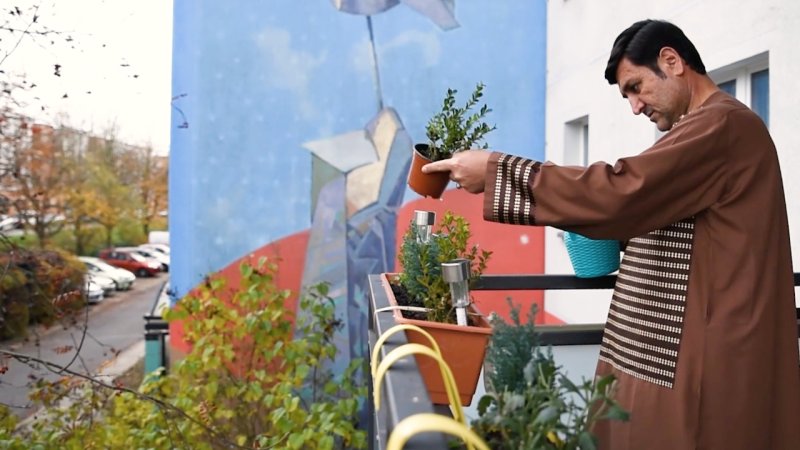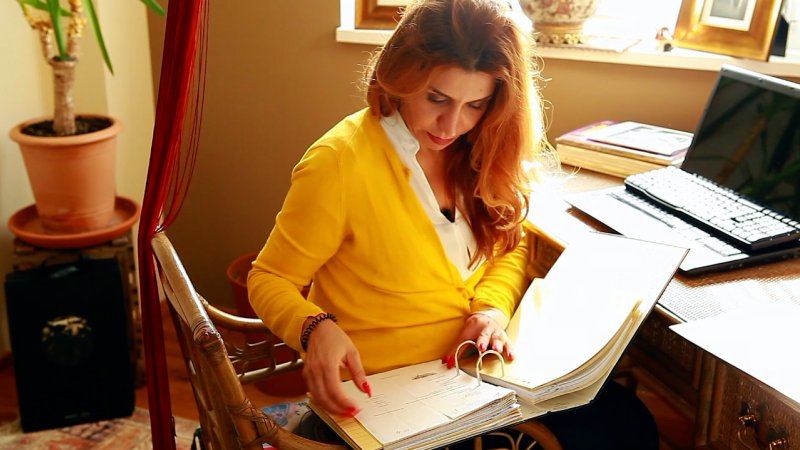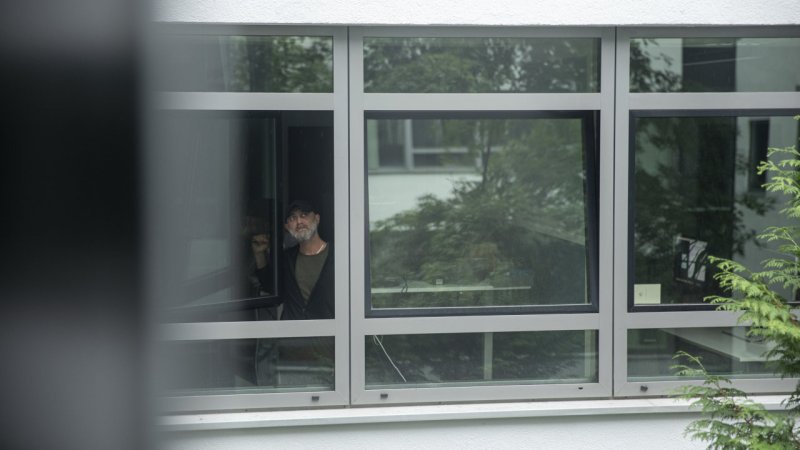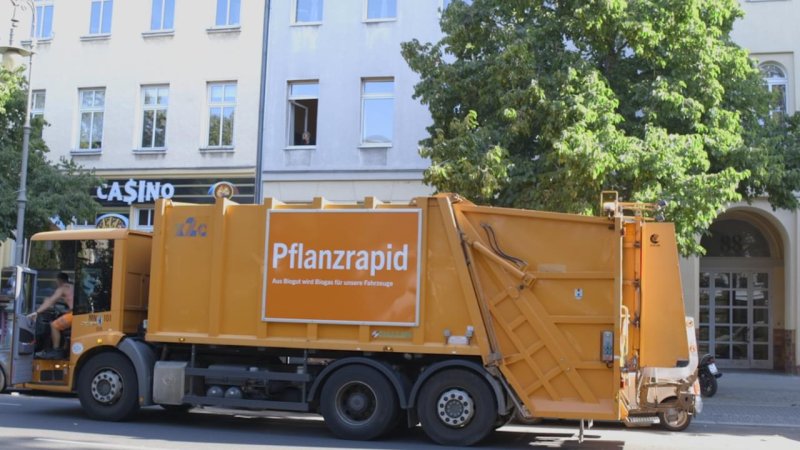Licence Fee for Public Broadcasting
Whenever you turn on the TV or radio, you can choose from a variety of channels. In Germany, the companies which operate these channels are divided into two main categories: private broadcasting and public broadcasting companies. Private broadcasters finance themselves through advertising, but the public broadcasting companies, e.g. ARD and ZDF, are primarily funded through licence fees paid by the public. Everyone who lives in Germany must pay such licence fees so that they can benefit from public broadcasting - whether they actually use the services or not. Public service broadcasting contributions are regulated by the Public broadcasting State Treaty ("Rundfunkbeitragsstaatsvertrag").
Moving out
Moving in or out of a rented flat involves many steps and chores. Here, you can learn what you need to consider and which steps are essential to ensure that everything runs smoothly.
Refugee Accommodation Centres
In initial reception facilities, often large groups of people live in limited spaces. So there are rules and standards to help the residents live together, and the staff are responsible for ensuring these regulations and standards are implemented and respected. In principle, these rules apply to all accommodation centres, including shared accommodation centres and, except a few exceptional cases, also emergency shelters.
Registering your address in Germany
If you arrive in Germany and want to stay longer than 3 months, you must officially register with the authorities. A registration certificate (“Meldebescheinigung”) is crucial, for instance, when you want to request a new ID or passport, apply for or extend a residence permit, open a bank account or rent a flat. A registration certificate may also be required when applying for benefits such as child benefits or when registering for marriage. Employers, schools or public authorities also often ask for a registration certificate.
Here, you can find all the information and helpful links you require concerning the registration certificate (“Meldebescheinigung”) and how to register your address.
Important: Registering your address has nothing to do with the registration you are required to do as an asylum seeker or registration at the Immigration Office– refugees are required to do both registrations. Find out more about the registration process for refugees in the chapter “Registration as an asylum seeker”.
Address registration is stipulated in the Federal Registration Act (BMG).
Rental Contract
A rental contract is the legal basis for transactions between a landlord and a tenant. Here, you can learn what to look out for when signing a rental agreement.
Renting a flat
Finding a new flat is challenging in many German cities. When you finally find a flat, there is much to sort out. For example, you must inspect the tenancy agreement, register for electricity and internet services and plan the move. Here, you can find out what you need to look out for. There is a checklist at the end of the page to help you plan everything in advance.
Schufa
While renting an apartment, your landlord will most probably ask for a Schufa statement. If you ask Banks for a loan, they will make a Schufa inquiry before they decide your request. Even if you buy a cell phone or lease a car, your contract usually includes a Schufa-related clause.
All this has to do with a company called "Schufa Holding AG". Schufa Holding AG is a credit investigation company which collects information from consumers and companies involved in the lending process. Schufa Holding will review your past payment history, and forecasts your payment behaviour in the future in the form of figures ("Schufa score"). This process is called credit rating.
Schufa Holding AG demands money for the credit report. However, according to German law, you are entitled to receive a free Schufa report once a year. Doing so will help you check what information is stored, where it came from, and to whom it was forwarded. We have created an animation video to show you how to get a free Schufa in a few steps.
Important: Some loan sharks may offer you money without a Schufa inquiry in newspaper ads or on the Internet. Do not fall for it! A majority of these offers are fraudulent.
Searching for a Flat
Housing expenses have been rising sharply in Germany in recent years, and living space is becoming increasingly scarce, particularly in larger cities. The situation is better in smaller cities or rural areas, but finding an affordable flat may be a challenge even outside the large cities. The tips and information which follows will facilitate your flat-hunting, and considering them can lead to a better result.
Supplementary Insurances
In addition to the five compulsory social insurance schemes (medical, long-term care, pension, accident and unemployment insurance), there are other types of insurance one can apply for in Germany. These are optional, even though the word "compulsory" ("Pflicht") may sometimes appear in their titles, e.g. in the "liability insurance" ("Haftpflichtversicherung"). Most of these optional insurances protect you against financial risks. Depending on the life situation you are in, some of them may be useful.
Types of housing
In Germany, there are different types of housing that are adapted to different living situations. Here is an overview of some types of housing that may be relevant for you, depending on your individual needs.
Waste Separation and Recycling in Germany
Waste separation means that different types of waste are collected and recycled separately. In Germany, waste separation starts with the consumer, i.e. households must sort their waste and put it in separate bins and containers.
A large part of the waste generated in Germany is reused and composted, which saves resources and protects the nature. Germany is even set to become the world champion of waste separation. However, the recycling industry and the combustion manufacturers benefit from the waste and also compete in their businesses. That is why there are people who doubt the purpose of the waste separation. To avoid creating waste is, therefore, still the easiest way to prevent the rise of waste piles.
If you fail to dispose of the waste in the right container, the employees or sorting personnel at the recycling facilities have to re-sort the waste. If we all separate waste properly, this extra effort can be avoided, the costs will decrease, and the environment benefits.
